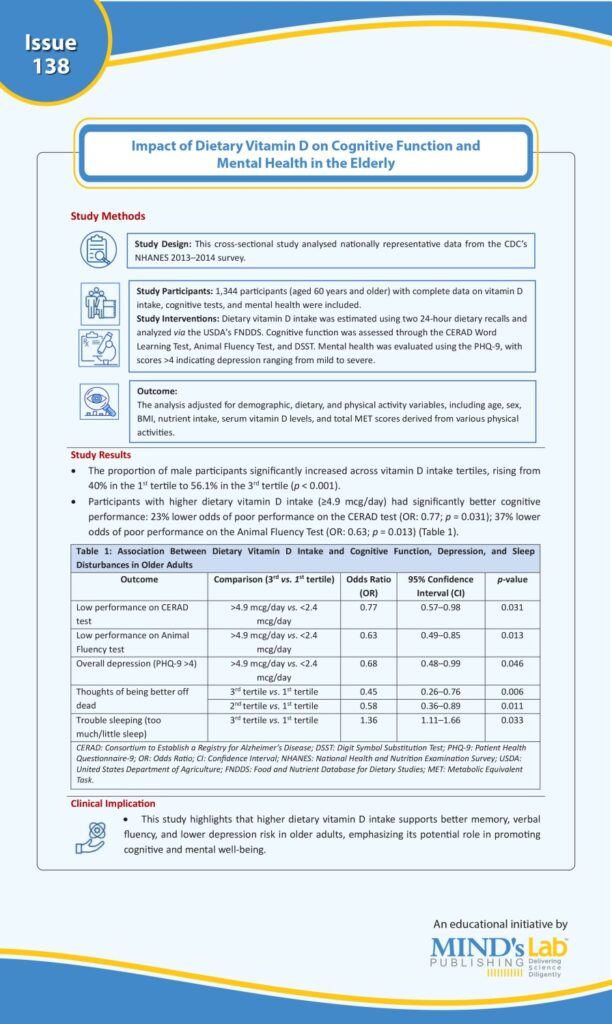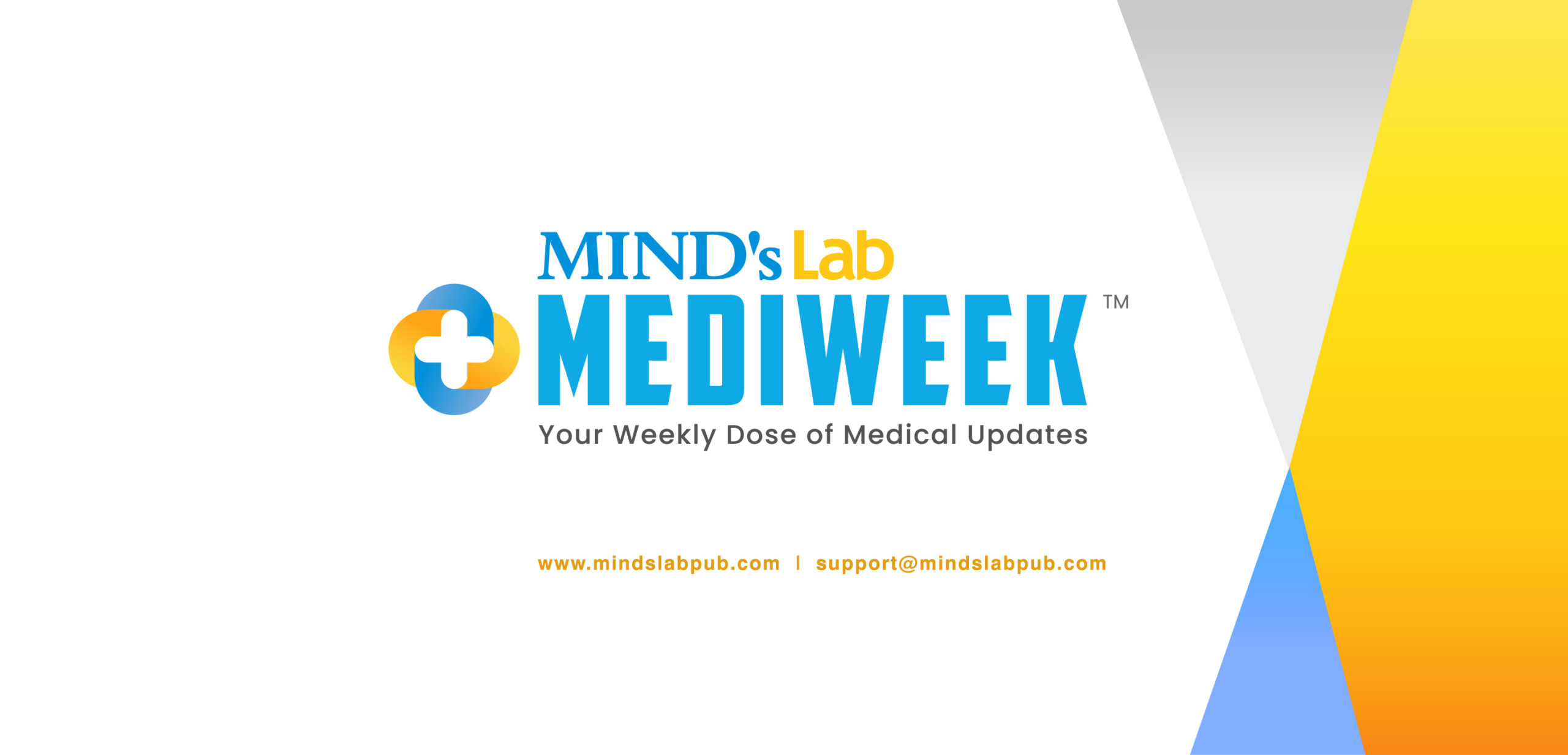
The global rise in the prevalence of dementia (repoted to affect 55 million in 2020 and expected to triple by 2050) and depression (affecting 10–20% of the older adults) highlights the urgent need for affordable, effective interventions to reduce the risk of these debilitating mental illnesses.
Vitamin D, with limited dietary sources, is primarily obtained from exposure to sunlight. It is crucial for bone health, immune function, and is increasingly recognized for its role in brain health. Older adults are more prone to deficiency due to reduced skin synthesis, poor dietary intake, and aging-related lifestyle changes. Vitamin D receptors and metabolic enzymes are present in the brain, suggesting its role in neuroprotection, inflammation regulation, and neurotransmitter balance.
Cognitive decline and depression often coexist, each worsening the other through shared biological mechanisms. While many studies link low vitamin D levels to impaired mental function or depression, findings are inconsistent. Few studies have evaluated both the outcomes together. Further research is needed to clarify the dual impact of vitamin D on cognition and mental health in the elderly.
A study by Chen et al., published in the journal “Frontiers in Nutrition”, investigated whether dietary vitamin D intake is associated with cognitive performance and depression in older U.S. adults. Using NHANES 2013–2014 data from 1,344 participants, vitamin D intake was categorized into tertiles. The individuals in the highest tertile of dietary vitamin D intake (≥4.9 mcg/day) had significantly lower odds of poor performance on the CERAD test (OR: 0.77; 95% CI: 0.57–0.98; p = 0.031) and Animal Fluency test (OR: 0.63; 95% CI: 0.49–0.85; p = 0.013) compared to those in the lowest tertile (≤2.4 mcg/day). The study suggests a potential protective role of dietary vitamin D in cognitive and mental health, warranting further longitudinal research to confirm causality (See Graphic).

(Source: Chen H, Pang X, Huang Y. Higher dietary vitamin D intake influences brain and mental function in elderly Americans: a cross-sectional analysis. Frontiers in Nutrition. 2025;12:1564568. Doi: 10.3389/fnut.2025.1564568)
